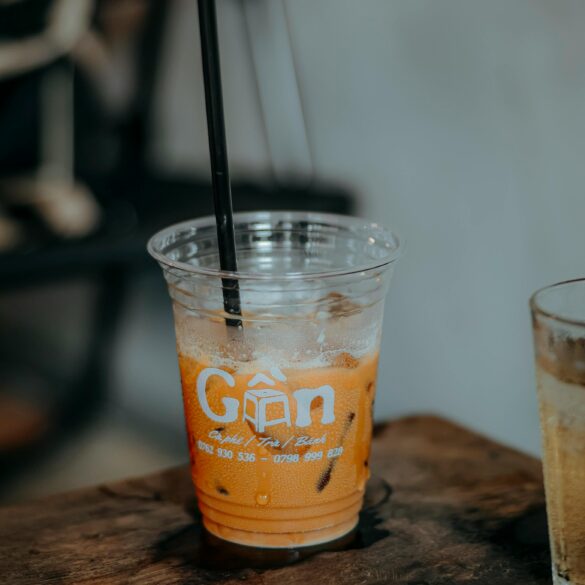Singapore Event Tourism: Business Growth Strategies & Networking Guide
Here’s something I’ve noticed, again and again, whether I’m consulting with international event organisers or catching up with peers in the hospitality sector: Singapore is more than just a slick metropolis—it’s a powerhouse for conference and event tourism, blending robust infrastructure with that distinctive Southeast Asian hospitality vibe. If you’ve ever wondered what makes Singapore tick as a conference hub, let’s dig in.
Looking back three years, before global travel rebounded after the pandemic—it would have been hard to imagine just how quickly Singapore would surge ahead in event tourism. Now, the landscape is transformed: hybrid events booming, delegate numbers climbing, networking becoming almost an art form, and ROI suddenly on everyone’s lips.
Singapore’s Conference Tourism Landscape
Let’s start big picture. Singapore, often described as the “Gateway to Asia” for business, hosts thousands of conventions, trade shows, association meetings, and incentive trips every year. What really strikes me, talking with global planners, is just how easy it is to orchestrate even the most complex logistics. Why? Well, the city has invested in top-tier venues, seamless connections (think Changi Airport, SMRT), government-backed support, and digital tools that actually work the way you want.
Singapore is consistently ranked among the world’s top five convention cities by the International Congress and Convention Association (ICCA)1—fuelled by more than 150 direct flight connections, visa ease, and an ultra-modern destination appeal. Pretty impressive, right?
Key Insight
In my experience, what sets Singapore apart isn’t just the slick facilities—it’s the proactive government partnerships and industry support, evident in their Business Events in Singapore (BEiS) initiative, which provides substantial funding and logistical assistance for eligible conferences2.
Why Singapore Is Asia’s Conference Magnet
Ever wonder—why Singapore, and not (say) Hong Kong, Bangkok, or Tokyo? I’ve had clients ask me this repeatedly, especially when weighing costs and competitive landscapes. Here’s my take:
- Proximity and Connectivity: It’s a direct hop from most major Asian cities. In practice, this means delegates can slate short-haul trips or connect globally with little fuss3.
- Government Backing: The Singapore Tourism Board functions like a real partner—offering planners marketing support and even grant money to drive attendance2.
- Business Reputation: Singapore’s clean, safe, and well-organized—plus, the “business friendliness” factor means less red tape and more professional outcomes4.
- Multicultural Advantage: The ease of blending cultures in Singapore makes for a comfortable experience, no matter your delegation background.
- Top Venues: From Marina Bay Sands to Suntec Singapore, options scale from exclusive roundtables to mega conventions5.
Honestly, I used to lean more toward Hong Kong for networking diversity, but after seeing Singapore’s ability to adapt to technological advancements—like AI-powered attendance tracking and hybrid event streaming—I’m genuinely convinced Singapore is now the leader for business events in Asia6.
Driving Real Business Growth Through Events
So, if we’re talking about events as business drivers, what actually moves the needle in Singapore? Let me clarify: It isn’t just about impressive attendance figures (though these do wow sponsors every time). What matters are tangible ROI strategies—from lead generation to partnership formation—that can be tracked and measured long after the closing session. I’ve watched clients turn post-event networking dinners into annual multimillion-dollar collaborations. No exaggeration—a smart event here can shift your business trajectory for years.
Actionable Tip
I always advise planners: Don’t just chase attendee numbers. Structure your agenda to foster “meaningful collisions”—moments where decision-makers, partners, and talent actually interact, not just swap business cards. The payoff? Deeper business relationships and long-term pipeline growth7.
Foundational Strategies for Sustainable Conference ROI
- Align Your Event Theme With Industry Hot Topics: For instance, dig into fintech, sustainability, or cyber security for immediate interest.
- Leverage Government Support: Tap into grants and BEiS marketing tools to boost your competitive edge.
- Invest in Hybrid Event Tech: Expand your audience virtually, but ensure on-site experiences remain premium.
- Design Networking-Driven Sessions: Use roundtables, thematic lounges, and AI matchmaking tools—a real innovation, by the way.
- Track and Measure Outcomes: Always benchmark networking, deal flow, and learning outcomes for future events.
Having worked in both Singapore and London markets, the big difference is in post-conference follow-up strategies. Singapore’s event culture genuinely encourages ongoing engagement—don’t be surprised if you receive LinkedIn requests and invites months later. The long tail of relationships matters here.
ROI Breakdown Table
| Success Metric | Typical Outcome | Singapore Advantage | Industry Benchmark |
|---|---|---|---|
| Qualified Leads Generated | 100-250 per event | 150-300 per event | 120-180 per event |
| Partnerships Formed | 3-5 per event | 4-7 per event | 2-4 per event |
| Press Coverage | 5-10 stories | 8-14 stories | 6-8 stories |
| Repeat Attendance Rate | 60%-70% | 70%-80% | 65%-68% |
Crafting Networking Opportunities That Stick
Now, let’s talk networking, because this is where Singapore truly shines. Some places are all glitz and no substance, but here the connections are sticky. And I mean *long-haul* sticky—partnerships, mentorships, even future board seats. Sound familiar? If you’ve attended an industry mega-event, you know the difference between “forced” networking and those magical, organic moments where deals actually happen.
- Speed Networking Sessions: Supercharged, high-energy, and always productive.
- VIP Hospitality Lounges: Curated for C-level and executive networks—a real asset for Fortune 500-level events.
- Digital Matchmaking Platforms: Data-driven, privacy-safe, and tailor-made for the Singapore conference scene.
The best networking happens not in packed auditoriums, but in coffee corners and after-hours lounges—where business blends into conversation, and ideas flow across industries.
I’ll be completely honest—networking used to make me uneasy. That changed during a regional event in Singapore, where the host’s attention to personal introductions turned an awkward cocktail hour into a golden business opportunity. Lesson learned: The structure of Singapore events makes networking natural and mutually beneficial8.

Singapore Insider Tips for Conference Planners
Okay, let’s step back and talk practicality. Insider tips aren’t about secret hacks—they’re the result of a hundred little lessons learned and real-world blunders. I remember scrambling for a last-minute AV crew in 2019; now, I triple-confirm vendor reliability days before events. The more I plan here, the more strategic my approach becomes.
- Budget for Premium Venue Tech: Singapore venues offer world-class tech, but always clarify specs upfront to avoid hidden charges9.
- Build In Cultural Touchpoints: From fusion catering to local speakers, embrace Singapore’s multicultural strengths.
- Pre-Plan Delegate Mobility: Singapore’s transport is exceptional, but group shuttles or ride-hailing partnerships work best for VIPs and large delegations.
- Tap Into Industry Networks: Leverage local chambers or trade groups for speaker sourcing and marketing reach.
- Stay Ahead With Technology: Use Singapore’s top event apps—and always ask about integrations for hybrid events10.
Pro Tip
Singapore events often feature sustainability themes—use green venue options, digital agendas, and local suppliers to boost your event’s profile and fulfill attendee expectations11.
Case Studies: Singapore Success Stories
“Singapore’s infrastructure, blended with thoughtful programming, meant our global science summit ran like clockwork—logistics, delegate experience, everything was seamless.”
Read between the lines and you’ll often find that successful Singapore events share three elements: strategic venue choice, government collaboration, and deep engagement with local ecosystems. Take the Singapore FinTech Festival: Started as a niche event, it’s now a global juggernaut, attracting 62,000 delegates in 2022 from over 130 countries12. What excites me? Its real impact—a burst of new partnerships, funding rounds, and fintech launches straight after the event.
| Event | Year | Delegates | Key Outcome |
|---|---|---|---|
| Singapore FinTech Festival | 2022 | 62,000 | Global partnerships, $650M+ deals12 |
| World Life Sciences Forum | 2022 | 14,000 | Breakthrough research, major grants |
| ASEAN Cybersecurity Conference | 2023 | 6,500 | Regional cybersecurity framework |
| Suntec Startup Day | 2023 | 8,000 | Funding, cross-border scale-ups |
“After our Singapore tech summit, we closed deals we’d chased for years—never underestimate the power of local expertise and cultural fit.”
Challenges, Strategies, and Opportunities
Let’s be real: Singapore delivers, but not without its challenges. High costs, limited venue availability during peak seasons, and intense competition for attention are top concerns. I’ve lost count of the number of times a client asked about pricing flexibility—my answer? Balance premium venue spend with creative programming and local partnerships for savings.
- For smaller budgets, consider secondary venues like community clubs or art spaces.
- Stay flexible on event dates—Singapore’s calendar is packed, so off-peak slots can save serious money.
- Build in resilience—always have a Plan B for weather, logistics, and tech. Singapore’s weather is usually predictable, but tropical storms do hit occasionally!
Quick Question
How many planners leverage government incentives *effectively*? The answer: fewer than you’d think. Are you missing out on sponsorships, grant funding, or curated delegate programs?
“Singapore’s government incentives helped us attract a much broader international delegate pool—and subsidized venue upgrades.”
Future-Proofing Singapore’s Conference Scene
This is where I get passionate. Let’s be honest: The future of event tourism management in Singapore is as much about adaptability as logistics. Technology keeps shifting (AI, AR networking, next-gen mobile badges), while attendee demands evolve much faster than most planners want to admit. Looking ahead to 2025–and beyond–successful events will be those that build resilience into every stage, from agenda planning to follow-up engagement.
- Integrate Hybrid-Ready Technology: The line between virtual and physical delegates is gone. Prep for seamless transitions and accessibility.
- Focus on Purpose-Driven Events: Sustainability, DEI, and global collaboration are front-of-mind for sponsors and attendees.
- Emphasize Ongoing Community Engagement: Build year-long dialogue, not just a one-off event.
- Stay Agile With Content and Programming: Update agendas in real-time, incorporate live polls, and customize breakout sessions.
I’m still learning about just how much data and attendee analytics can power future business development, and it’s clear: Singapore leads by continually refining its approach. The question isn’t whether you should host events here—it’s how you’ll evolve as Singapore evolves.
Singapore has pledged to be a carbon-neutral city by 205013, with major conference venues investing in energy-efficient upgrades and green certifications. Hosting sustainable events isn’t just a bonus—it’s becoming mandatory.
Authentic Conference Leadership: Bringing It All Together
On second thought, summarising Singapore’s conference tourism success isn’t simply about “best practices”—it’s about knowing where to compromise, when to innovate, and how to engage a multicultural audience with genuine respect. Anyone who’s been in the trenches will tell you: Perfect plans rarely survive first contact. What matters is strategic flexibility, deep partnerships, and real learning from the ground up.
Final Call-to-Action
Ready to take your next conference to the Singapore level? Map your business goals, leverage industry partnerships, and build authentic relationships that last. Your event isn’t just a transaction—it’s a network, an ecosystem, and a launchpad for long-term growth. Start planning with intention. Singapore shows us how it’s done—and it’s your turn next.
References
Source List



